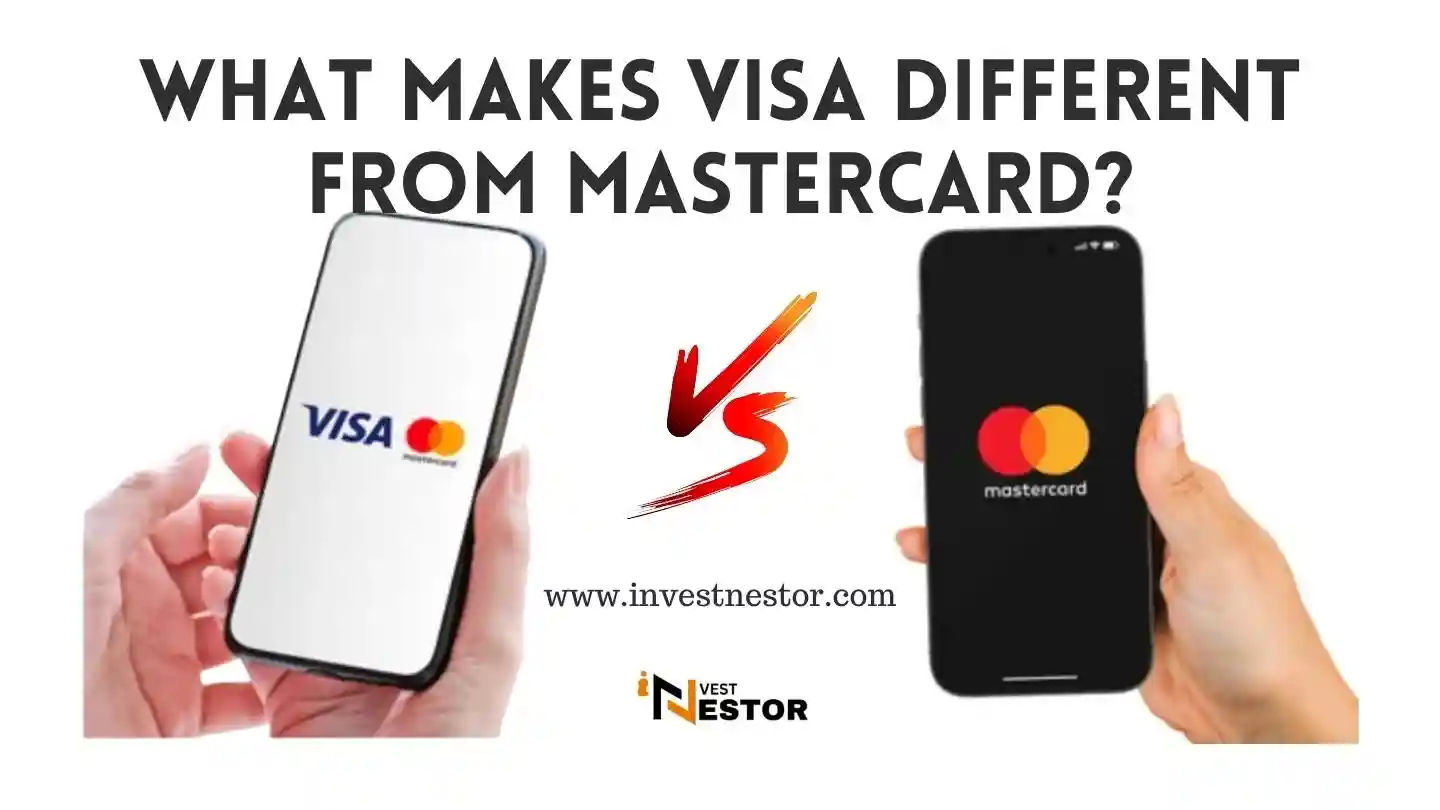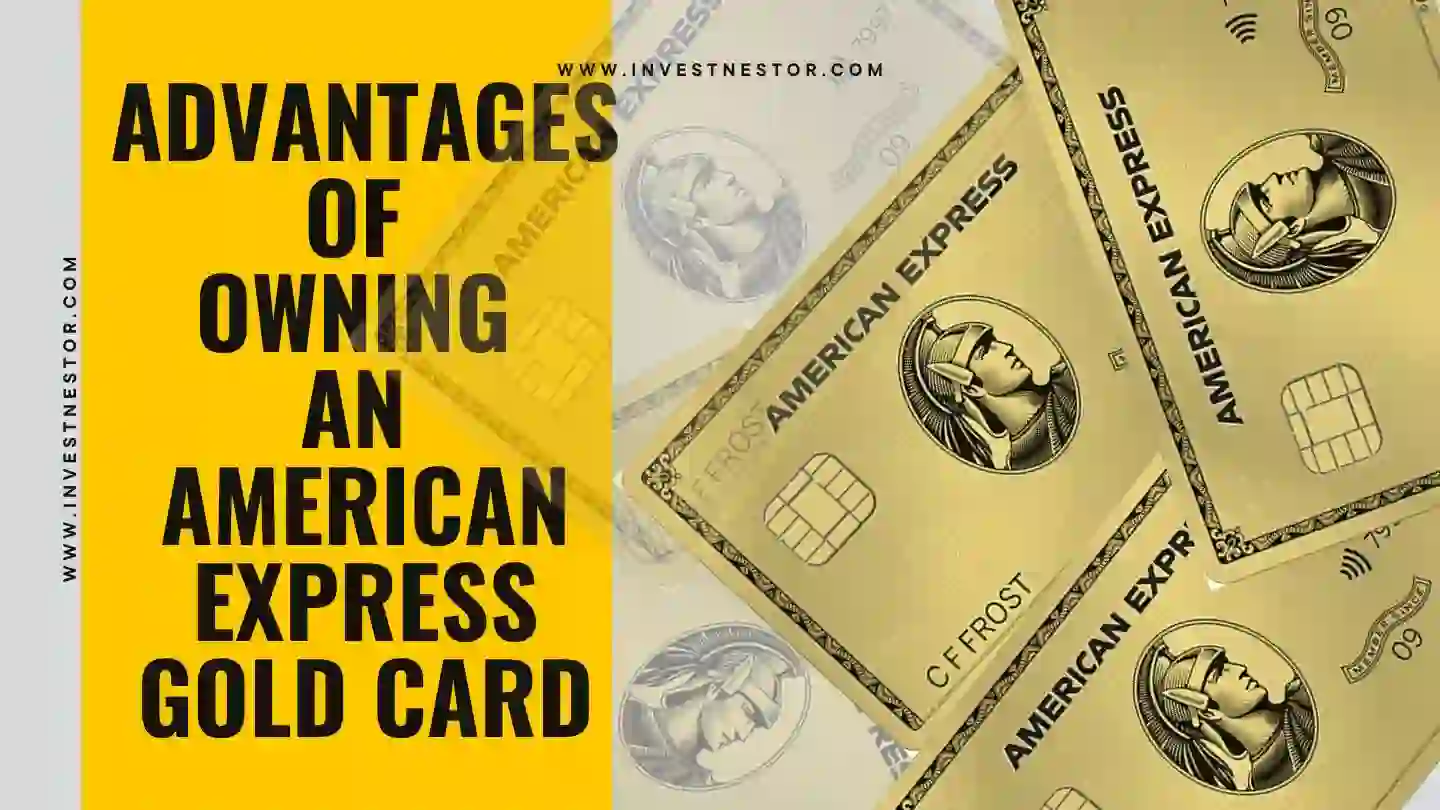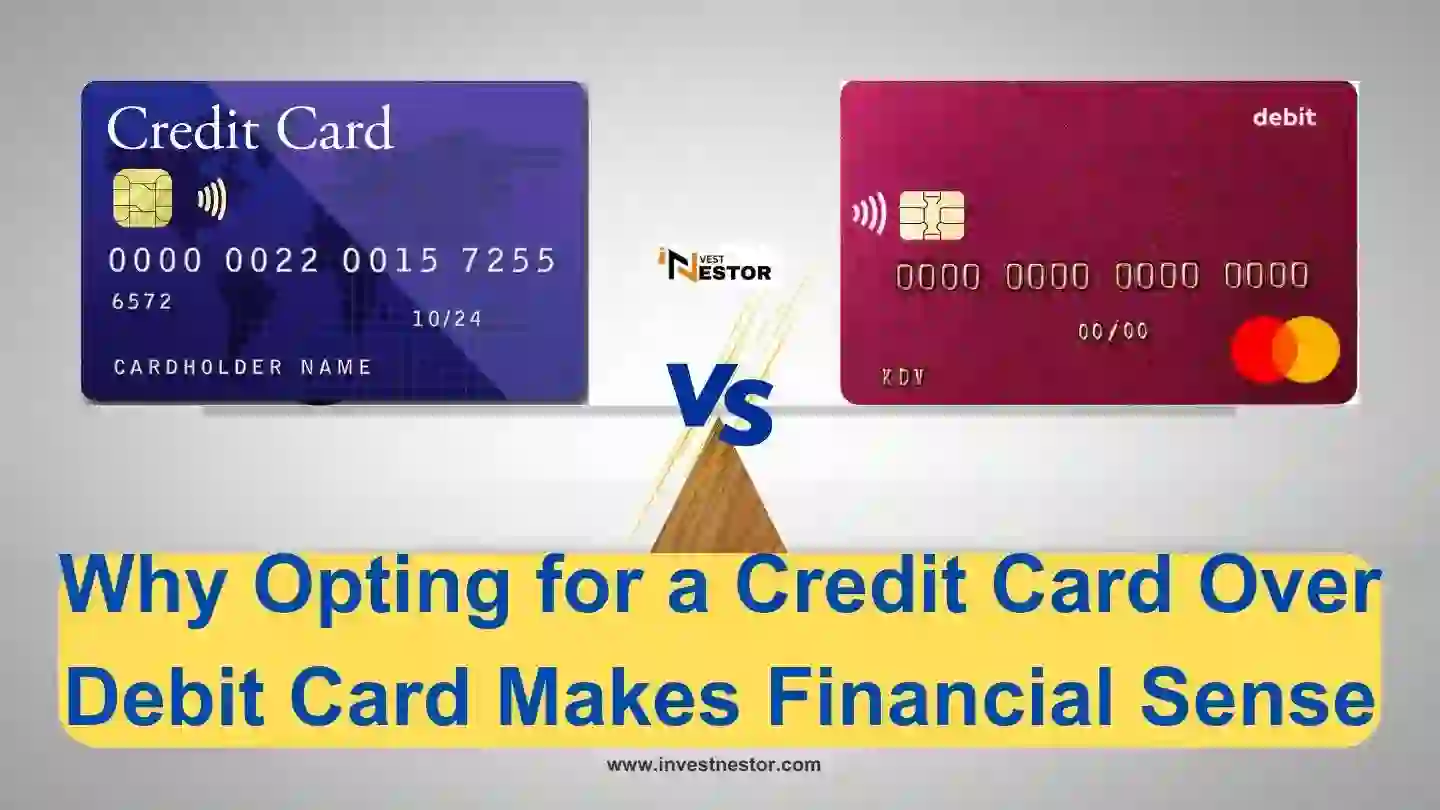
Visa vs. Mastercard: Difference between Visa and Mastercard?
Credit card networks that power credit card purchases are Visa and Mastercard. In the meantime, there is a Visa or Mastercard somewhere in your pocket. For the three quarters of 2022, Visa and Mastercard became top participants in the North American card network market, as the data from The Nilson Report indicated.
They collaborated to achieve an impressive total buying volume of $3.05 trillion simultaneously. Visa credit transactions alone accounted for over $ 2 trillion of that total. Which of the two is superior, and what differentiates them from one another?
Key Highlights
Visa and Mastercard are the world's two biggest payment processing networks.
Visa and Mastercard, unlike Discover and American Express, which give their cards directly to the consumers, issue them through their member banking institutions.
Member banks and credit unions also issue Visa and Mastercard debits, sometimes even with major national retailers, hotels, and airlines, all through co-branded agreements.
Individual card issuers can provide advantages that are provided by Visa and Mastercard.
Which One Is Better, Visa or Mastercard?
The truth is that either credit card network is probably a decent option if you're attempting to choose between a Visa or a Mastercard. Both credit card networks offer helpful extra features and are extensively accepted both domestically and internationally. Almost anywhere you shop, a card from either credit card network will be accepted.
Ultimately, it doesn't matter whose credit card network you choose; what counts is which particular credit card issuer and credit card you choose. This is because Mastercard and Visa both have fairly comparable perks. Visa and Mastercard bonuses are pleasant extras, but they are less significant than other relevant information, such as a specific credit card's interest rate or rewards program.
Editor Picks: How Many Credit Cards Should I Have for Good Financial Health?
Key Difference Between Visa or Mastercard
We are heading forward to learning the key differences between these two powerful cards - Visa & Mastercard.
Acceptance: in Which Area Is Your Card Accepted?
The ability to use a credit card where you plan to spend money is crucial, and this varies depending on the card network. When travelling abroad, in particular, it is common to run across a merchant who does not take Discover and American Express cards.
However, there is not much difference in acceptance between Visa and Mastercard: Most companies that take credit cards also take debit cards. Millions of establishments accept Mastercard and Visa in more than 200 countries worldwide.
Recent regulatory statistics state that there are approximately 4.2 billion Visa cards in use worldwide. Approximately 3.1 billion cards are sold under the Mastercard brand.
However, there are a few noteworthy outliers. For instance, because of its unique arrangement with the payments network and bank issuer (Citi), Costco exclusively takes Visa cards. Nevertheless, you probably won't notice a significant variation in acceptance rates between Mastercard and Visa.
Market Portion
Visa's dominance of the worldwide credit industry sets it apart from Mastercard in a big way. Every year, Mastercard handles almost half as many payments as Visa, and Visa consistently generates more income.
Nearly 40% of all credit transactions worldwide in 2022 were conducted with a Visa-branded card. During that year, Visa payment cards were used for almost 242 billion purchase transactions globally, or about 660 million daily transactions on average. In contrast, Mastercard accounts for 24% of all card transactions overall.
Card Issuers
The Visa vs. Mastercard argument may depend on how devoted you are to a specific bank or credit card provider if that is the case. Only offering cards on a single network or preferring one over the other are some of the biggest card issuers. To find out which network Visa or Mastercard prefers, we examined some of the biggest card issuers.
Bank of America:
This large bank provides a range of travel and cash-back cards that are accepted on the Mastercard and Visa networks. But there are three times as many Visa cards as Mastercards in B of A. This makes sense because the business that gave rise to Visa as we know it today was founded by the bank that preceded Bank of America.
Citi:
It is evident that this large bank favours Mastercard. Only the co-branded card with Costco, which is the only card in its lineup, is a Visa card. World Elite Mastercard®s are the name given to all of its premium travel cards.
Chase:
Chase is one of the biggest credit card issuers in the market. It primarily offers Visa cards, except for the cards from its own Freedom range, Air Canada, IHG hotel cards, and the recently released DoorDash Rewards Mastercard® and Instacart Mastercards. The long-standing partnership between Visa and Chase doesn't appear to be changing anytime soon.
Capital One:
Visa and Mastercard share responsibility for facilitating plastic payment transactions for Capital One cardholders. Its business credit cards, which are all issued via the Visa network, are the main exceptions.
U.S. Bank:
This card issuer offers a few American Express cards in addition to Visa cards, which are its major offerings.
Wells Fargo:
American Express, Mastercard, and Visa cards are all contained within the stagecoach.
It makes sense that some cardholders select one bank over another because they want to maintain all their accounts in one location. Some wish to combine their points and advantages under a single issuer. If so, your preferred card provider will determine which is better—Mastercard or Visa.
Technology
Your contactless Visa and MasterCard transactions are supported by technology. Visa and MasterCard both place a strong focus on security to encourage safe online transactions. The technology employed in security integration distinguishes Visa from MasterCard. Verified by Visa checks your transactions to make sure you gave the go-ahead for the purchases. You will be asked for further information and your password if you use a new device or make a significant payment. Similarly, a private code is generated when you use your MasterCard SecureCode to make online purchases.
Service Charge
The money received by Visa and MasterCard comes from the payment processing fee. But the way those fees are collected is different. Visa bills the card issuer based on the volume of cards issued or on a per-transaction basis. On the other hand, MasterCard assesses fees to card-issuing organizations according to the proportion of global dollar volume.
The total amount of all transactions performed using MasterCard-enabled cards during a given time frame is referred to as the "global dollar volume." Not the cardholders but the card-issuing organizations are subject to different fees. Because of this, your card issuer charges a flat fee that doesn't change.
Levels of Cards
To accommodate your diverse needs and preferences, MasterCard and Visa both provide a variety of card options. There are three Visa tiers: Infinite, Signature, and Traditional. Depending on the card category, your Visa card may have different benefits.
In contrast, MasterCard has three tiers: Standard, World, and World Elite. Every tier has a different set of advantages. The benefits of a high-level MasterCard, such as World Elite, will be significantly greater than those of a Standard MasterCard.
Suggested Articles: Smart Strategies for Avoiding Credit Card Fees
Is A Mastercard cheaper than a Visa?
When picking a credit card for your holiday, one important feature separates Visa and Mastercard. When you buy something in another country with your credit card, the provider will convert local currency to pounds sterling GBP, using their own exchange rate.
If using a Visa card, the applied exchange rate will be based on Visa's rates, while Mastercard users have to agree with the Mastercard setup.
Usually, Mastercard offers a slightly preferable currency conversion rate as compared to Visa cards. A Mastercard credit card will make your holiday spending more affordable than a Visa when you travel.
Conclusion
So there you have it - the difference between Visa and MasterCard. "VISA vs. MasterCard: Which is better?" is a frequently asked question by cardholders. You must realize, nevertheless, that both are payment gateways that collaborate with different banks and retailers. Furthermore, the bank or the card issuer determines the features and perks of the card. Additionally, banks employ factors like fees, interest rates, sign-up bonuses, etc., to define a card's benefits. When deciding between a VISA and a MasterCard, consider your salary and credit score, among other factors. The majority of the other features and advantages are fairly comparable.
FAQs
Which is better, Mastercard or Visa?
Since Visa and Mastercard are virtually accepted everywhere, the decision to use one over another is based on individual differences in how much value they place on network benefits. In general, Visa offers its cardholders more advantages than Mastercard does.
Which is safer: Mastercard or Visa?
Vulnerable users who become victims of fraud, theft or data vulnerability will not have to take responsibility for money lost because both Visa and Mastercard provide no-fault liability on all their cards. Both networks employ different techniques to secure your data and are, therefore, considered very safe.
Why is everyone switching to Mastercard?
If your bank converted a Visa card to a Mastercard, it was probably done so because they thought Mastercard's features and advantages outweighed Visa's. For instance, the issuer may consider network-level perks like purchase protection trip insurance or processing fees.
Suggested Articles:






0 Comments
Add a comment